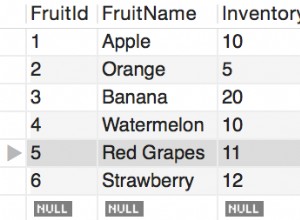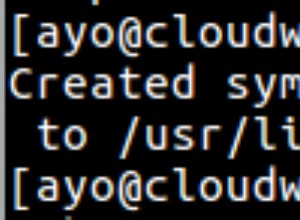Aqui estou dando um exemplo para enviar JSON e um arquivo Zip para o
REST serviço web usando Oracle UTL_HTTP post multipart/form-data. Inicialmente, peguei o código de exemplo do blog de Nick Buytaert e o modifiquei para incorporar o
JSON e o arquivo ZIP. Enviar JSON e um arquivo Zip para o serviço Web REST usando UTL_HTTP
O seguinte código PL/SQL fará o
REST autenticação de serviço web usando o Token. E depois disso, ele obterá o JSON e o BLOB da tabela. Ele irá compactar o BLOB e, em seguida, combine-o com o JSON convertendo-o para base64 digite dados. Em seguida, ele irá preparar o cabeçalho e enviá-lo. declare
l_attachment blob;
l_newline varchar2(50) := chr(13) || chr(10);
lco_boundary constant varchar2(30) := 'gc0p4Jq0M2Yt08jU534c0p';
l_http_request utl_http.req;
l_request_body clob;
l_request_body_length number;
l_req_body clob;
l_http_response utl_http.resp;
l_response_header_name varchar2(256);
l_response_header_value varchar2(1024);
l_response_body varchar2(32767);
l_offset number := 1;
l_amount number := 2000;
l_buffer varchar2(2000);
l_clob clob;
l_token varchar2(32767);
begin
-- get the token
l_clob := apex_web_service.make_rest_request(
p_url => 'https://YourTokenURL',
p_http_method => 'GET');
l_status := apex_web_service.g_status_code;
APEX_JSON.parse(l_clob);
l_token:=APEX_JSON.get_varchar2(p_path => 'token');
-- prepare or get the json
l_req_body := '{name: "Scott", age: 33, city: "Huston"}';
l_request_body := l_newline
|| '--' || lco_boundary || l_newline
|| 'Content-Disposition: form-data; name="contact-info"' || l_newline
|| 'Content-Type: application/json' || l_newline
|| l_newline
|| l_req_body; --|| l_newline
--|| '--' || lco_boundary || '--';
-- get the blob from the table and zip it
FOR l_file IN (
SELECT
file_name,
my_file_blob
FROM
my_doc_table
WHERE
doc_id = '1234'
) LOOP
apex_zip.add_file(p_zipped_blob => l_attachment, p_file_name => l_file.file_name,
p_content => l_file.my_file_blob);
END LOOP;
apex_zip.finish(p_zipped_blob => l_attachment);
-- concatenate zip file as base64 data to the above json
l_request_body := l_request_body || l_newline
|| '--' || lco_boundary || l_newline
|| 'Content-Disposition: form-data; name="attachment"' || l_newline
|| 'Content-Type: application/zip' || l_newline
|| 'Content-Transfer-Encoding: base64' || l_newline
|| l_newline
|| apex_web_service.blob2clobbase64(l_attachment) || l_newline
|| '--' || lco_boundary || '--';
dbms_output.put_line('Request body>');
dbms_output.put_line(dbms_lob.substr(l_request_body, 4000, 1));
l_request_body_length := dbms_lob.getlength(l_request_body);
-- authenticate wallet
utl_http.set_wallet(
path => 'file:/your/wallet/path',
password => 'YourWalletPsw'
);
-- start sending the data
l_http_request := utl_http.begin_request(
url => 'https://yourRESTservicePostURL',
method => 'POST',
http_version => 'HTTP/1.1'
);
-- set header
utl_http.set_header(l_http_request, 'Authorization', 'Bearer ' || l_token);
utl_http.set_header(l_http_request, 'Content-Type', 'multipart/form-data; boundary="' || lco_boundary || '"');
utl_http.set_header(l_http_request, 'Content-Length', l_request_body_length);
utl_http.set_header(l_http_request, 'Transfer-Encoding', 'Chunked');
utl_http.set_header(l_http_request, 'Connection', 'keep-alive');
-- send data in chunks
while l_offset < l_request_body_length loop
dbms_lob.read(l_request_body, l_amount, l_offset, l_buffer);
utl_http.write_text(l_http_request, l_buffer);
l_offset := l_offset + l_amount;
end loop;
-- print the response
l_http_response := utl_http.get_response(l_http_request);
dbms_output.put_line('Response> Status Code: ' || l_http_response.status_code);
dbms_output.put_line('Response> Reason Phrase: ' || l_http_response.reason_phrase);
dbms_output.put_line('Response> HTTP Version: ' || l_http_response.http_version);
for i in 1 .. utl_http.get_header_count(l_http_response) loop
utl_http.get_header(l_http_response, i, l_response_header_name, l_response_header_value);
dbms_output.put_line('Response> ' || l_response_header_name || ': ' || l_response_header_value);
end loop;
utl_http.read_text(l_http_response, l_response_body, 32767);
dbms_output.put_line('Response body>');
dbms_output.put_line(l_response_body);
if l_http_request.private_hndl is not null then
utl_http.end_request(l_http_request);
end if;
if l_http_response.private_hndl is not null then
utl_http.end_response(l_http_response);
end if;
exception
when others then
if l_http_request.private_hndl is not null then
utl_http.end_request(l_http_request);
end if;
if l_http_response.private_hndl is not null then
utl_http.end_response(l_http_response);
end if;
raise;
end; Este código funciona como um encanto. Por favor, deixe-me saber na seção de comentários se você tiver algum problema.




